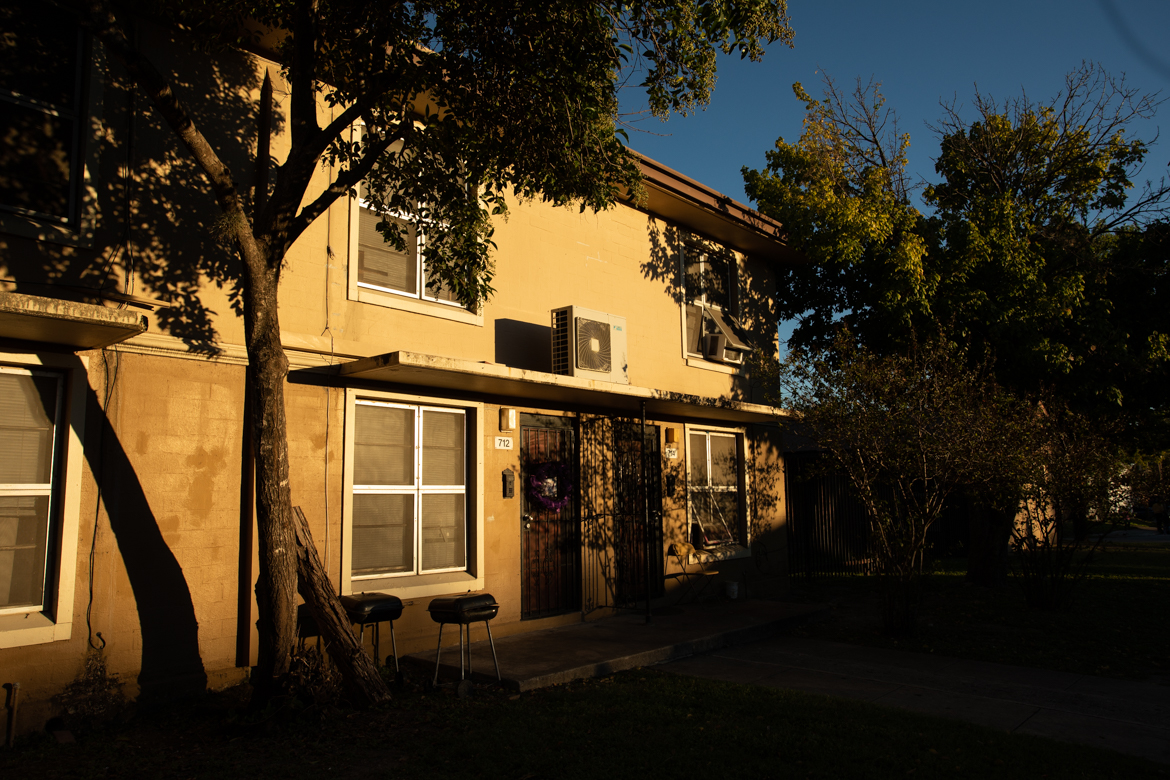Last summer, when State Rep. Diego Bernal heard that some San Antonians living in public housing do not have air conditioning, he vowed to find a solution.
Bernal toured several Opportunity Home San Antonio (Opportunity Home) sites, then met with Mayor Ron Nirenberg, City Council members, and others to develop a plan that would use some of the City’s local and federal funding combined with philanthropic dollars to provide about $1.5 million for more than 2,500 air conditioning units at 22 different housing complexes.
The initiative would give each public housing resident without air conditioning at least one window unit, Bernal told the Rivard Report.
Given that more than 30 days this past summer saw temperatures at or above 100 degrees, he was shocked to learn that some public housing units have never had air conditioning. “In my mind I was thinking it’s so unbelievable it has to be true,” he said.
And it is. Roughly 2,500 units in Opportunity Home’s housing complexes do not have air conditioning, Opportunity Home cEO David Nisivoccia said, and about one third of those are occupied by elderly or disabled people. Those residents will be the first to receive units, then residents with children.
Public housing didn’t include air conditioning in the 1930s and 1940s, Nisivoccia said. Opportunity Home, which oversees more than 6,200 housing units, had in recent years installed some new air conditioning units as part of an energy efficiency initiative, but not at a large scale. Some residents have provided their own window units, but not all can afford to do so.
“It’s just that it’s a long haul to make sure that [air conditioning] gets in every unit,” Nisivoccia said.
The 22 facilities include Opportunity Home’s Alazan, Lincoln Heights, Villa Tranchese and Victoria Plaza projects.
Local businessman and philanthropist Gordon Hartman committed to leading a fundraising effort to raise $300,000 in matching funds for the public-private sector effort.
While funding requests are pending approval next month by City Council, the San Antonio Housing Trust, and the U.S. Department of Housing and Urban Development (HUD), Opportunity Home’s $500,000 contribution is a matter of shifting funding from one account to another and repaying itself later, Nisivoccia said. Related: SA Housing Authority Plans 215-Unit Apartment Complex in Lavaca Neighborhood
Opportunity Home has between $350 million and $500 million worth of maintenance backlogs, he said, and safety issues take priority. “We receive only $11 million [from the federal government] to address that backlog,” he said.
In March, City Council will vote to reallocate $500,000 in federal Community Development Block Grant money to purchasing air conditioners, a move that ultimately must be approved by HUD. A request for $200,000 will go to the San Antonio Housing Trust, said Deputy City Manager Peter Zanoni.
City Council’s Comprehensive Plan Committee unanimously approved its funding recommendation for the HUD funds on Wednesday.
The City is also working with CPS Energy to connect residents who receive new air conditioning units with voucher and discount programs to help pay their electricity bills, Zanoni said.Related: New Development Adding More than 260 Affordable Housing Units to Urban Core
Bernal said some Council members approached him about possibly using more energy-efficient ways to cool the apartments, but he was against the idea.
“If you want to experiment, don’t do it with these folks,” he said, suggesting that City Hall would be a better place to try out more efficient climate-control methods. “You know what’s also inefficient? The emergency room.”
Bernal and Nisivoccia said they expect all the units can be installed by summer.
“It haunted me for weeks and months – especially when the days were super hot,” Bernal said. “My air conditioning went out one day, and I thought of the folks with kids just as young as mine and people with health challenges. … They have to endure it all summer.”
“The issue gave me an idea for a local solution and got me thinking about a statewide solution,” Bernal said. As a result, he is filing legislation to require air conditioning in all public housing units.
